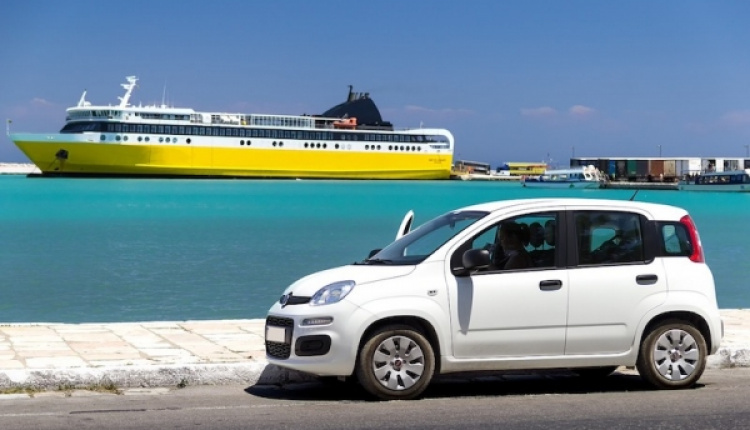Tips On Driving In Greece Safely
- by XpatAthens
- Wednesday, 29 November 2017

Driving in Greece, especially in Athens can seem daunting, but there’s a rhythm and once you get into the groove of the road, driving in Greece is a breeze. Here are some helpful tips for driving in Athens and general survival on the roads in Greece.
Know Where You’re Going And How To Get There – Have A GPS!
Although asking for directions is always helpful, following the instructions of a local through maze-like streets with not very visible signage makes getting to your destination a challenge. Whether you’re an experienced driver or not, having a GPS will simply make your life easier (and safer!) when driving in Greece.
What’s What When It Comes to Parking In Athens
Do not park within 3 metres of a fire hydrant, 5 metres of a pedestrian crossing or 15 metres from a bus stop.
Do not stop or park where the kerb is painted yellow, and be careful of parking in a ‘local parking blue zone’ in Athens – they are reserved for locals who live in the area; although not strictly enforced, you can get ticketed for parking in a blue zone.
Always use your hazard lights as a ‘warning’ - like the locals do - to show intention of parking.
Although parking enforcement is seemingly pretty relaxed, there are several cases of people getting their license plates removed for parking in a ‘no parking zone’ or getting expensive parking tickets for parking in a ‘local parking blue zone’. If you park illegally the police can legally take your plates and it will cost about 150 euros to get them back. So, be smart and use paid parking lots where possible, otherwise be super careful about where you leave your car parked in Athens.
Don't have a car, but need the flexibility of having 4-wheels from time-to-time?
Pick-up an affordable rental from Nicolas or Panos at Athens Car Rental and let them know
that the recommendation came from XpatAthens ~ they’ll be super helpful to you!
that the recommendation came from XpatAthens ~ they’ll be super helpful to you!
The Basics In Road Laws & Fines For Breaking Them
You must have a minimum of third party insurance coverage to drive in Greece.
The minimum driving age in Greece is 18, but you will need to be 21-23 years old to rent a car in Greece, depending on the rental car company.
Speed limits in Greece are as follows unless otherwise posted:
50 kms per hour in built up urban areas / urban areas
90-110 kms per hour on open roads and freeways
120-130 kms per hour on highways
Lower local limits may apply near schools
Always wear your seatbelt. If you’re driving with young children, make sure they’re in a car seat, and children under 10 must sit in the back seat. Kids under 18 years old are not allowed to drive.
Motorbikes are pretty much everywhere and they are allowed to drive between traffic on the white lines. Same road laws apply to them, but you should always expect to have a motorbike passing you on the left and right side!
The legal limit for blood alcohol in Greece is 25mg per 100ml of blood. For drivers with less than 2 years of experience on the road, the limit drops to 10mg.
In Athens you shouldn’t have a problem finding a petrol station, but in rural areas you may have trouble. Most petrol stations are open for twelve hours between 7am and 7pm and closed on Sundays! By law one petrol station per area must remain open at night and on Sundays, but if you’ll be out and about on a Sunday outside of Athens, fill-up from Saturday just to be sure.
Fines for breaking traffic laws in Greece are strict. For example, running a red light or a stop sign will cost you 700 euro. Not using a seatbelt in a car or not wearing a helmet on a motorbike means a charge of 350 euro. Talking on a mobile phone without a hands-free is a 100 euro charge. Driving under the influence can mean 200 - 1200 euro. In most cases, these fines are also accompanied by a loss of your driving license for 10 days, and up to 6 months depending on the case.
What To Do In An Emergency
Remember to keep calm. Be sure to deal with any injuries first and then think about the other details like:
Always have the contact details of your insurance company at easy access.
For roadside assistance call ELPA at 10400 - typically there is someone who can assist you in English.
The Emergency telephone line for visitors to Greece is 112 for information in English, French and Greek regarding ambulance services, fire brigade, police and the coast guard.
If you are using a rental car, be sure to have a 24-hour line or cell phone number for the rental company so you can contact them in an emergency if needed.
And last, but definitely not least, as with most things in Greece – and driving is no different – don’t take anything for granted and always expect the unexpected. Stay alert, drive safe and enjoy the road!
Click HERE for more helpful information about driving in Greece.
If you need advice on a rental car in Athens, get in touch with Nicolas or Panos at Athens Car Rental. Let them know that the recommendation came from XpatAthens and they’ll be super helpful to you!
